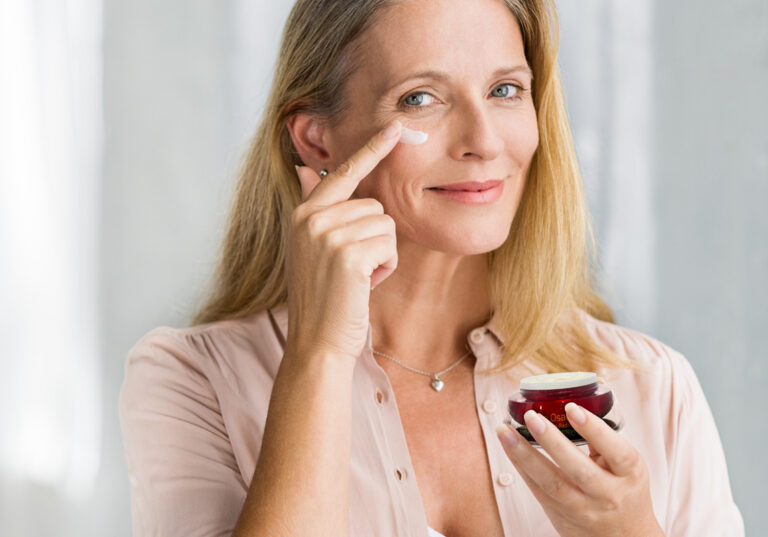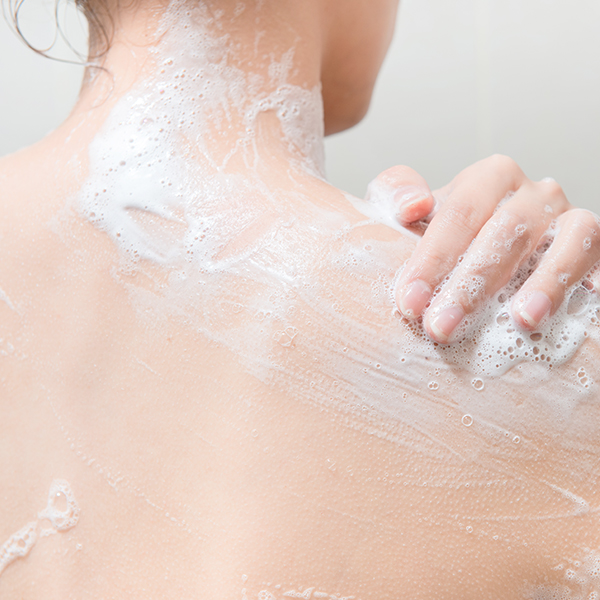Does Vitamin C produce stains in contact with the Sun?
There are still many of us who when we think of vitamin C, applied to our skin, we think of obtaining a perfect luminosity and vitality, but yes, we also believe that it is incompatible with the sun. Let's see more about this matter and other myths related to this wonderful vitamin for the skin.
The first idea that comes to mind is completely true, because the powerful antioxidant action of vitamin C blocks the action of free radicals, which cause premature aging of the skin; and as a consequence, by continuously using cosmetics rich in vitamin C, we achieve a skin full of energy, vitality and luminosity.
Also, you may not know that vitamin C helps burn fat by being involved in the synthesis of carnitine, a substance that must be present in cells to oxidize and break down fats. Therefore, cosmetics with vitamin C are not only ideal for dull skin, but also for oily skin, people with accumulations of facial sebum and of course, for products for body use, including gels and all kinds of body ointments.
Let us now address certain Myths. The second idea, the one that makes us fear the sun, if we have applied a cosmetic with Vitamin C, is just a popular legend generated by the ignorance of what actually happens with cosmetics formulated with this golden jewel.
Although we have long believed that vitamin C is photosensitizing, today we know that this vitamin, itself, is not incompatible with the sun. The fact that it is spoken of as a photosensitizing active is because there are cosmetics, creams and serums that contain it and that use an acidic pH for their formulation. By using the acidic pH they manage to stabilize it better, and precisely that acidity - which is usually around 3,5 - is the one that exerts a slight exfoliating effect on the skin. And, therefore, it makes the use of these products not recommended if you are going to expose yourself to the sun.
In Emocosmetics, the vitamin C that we include in various cosmetics is formulated with a pH similar to that of the skin. That is, a pH around 4,7 and therefore, they will not have a peeling effect and can be used all year round, regardless of sun exposure.
What's more, vitamin C, in itself, helps fight sun damage and treat blemishes. This is achieved by reducing the amount of melanin in the skin when it is not exposed to the sun, acting preventively. But the most incredible thing about this vitamin is that it also acts as a corrector when sun spots have already appeared on the skin, or when our dermis is receiving solar radiation. Being, therefore, one of the few assets classified as effective against hyperpigmentation.
So, if you want to take care of your skin and enjoy an illuminating and regulating melanin cosmetic in summer, the important thing is that you choose brands that work with formulations of vitamin C with neutral pH, and thus you will not deprive yourself of its infinite benefits. Remember that, Without sun, vitamin C reduces melanin and, under sun exposure, regulates its production.
Of course, the issue of skin blemishes is not an easy field to deal with and requires patience in treatments, since regulating and normalizing poorly working melanocytes is not an easy or quick task, so you have to wait months to start seeing visible results.
If you wonder when is it better to apply cosmetics with Vitamin C? Undoubtedly, its application in the morning is better than at night, because vitamin C acts as a shield against the aggressions of modern life, such as: pollution, radiation, or inclement weather. And remember: If the formula does not have an acidic pH, it can be used by anyone throughout the year.
Another myth is that vitamin C can irritate sensitive skin. In this case, it is important to talk about the concentrations, if it exceeds the concentration of 15%, pure vitamin C can irritate sensitive skin. In Emocosmética, the percentages are carefully calibrated, as well as the derivatives from which it is obtained, so that the most sensitive skin can enjoy its benefit without suffering any problem. Therefore, a quality vitamin C in the right amounts is ideal even for the most sensitive skin.
Finally, another of the most heard myths. It is said that vitamin C "dirties the dermis because it clogs the pores and dirt accumulates in them”. This is not only not the case, but it is a misinterpretation of what sometimes happens with certain cosmetics that contain unstabilized vitamin C.
The concept of photosensitivity is something quite simple to understand. But the misuse of the term has led to a lot of confusion. Something is photosensitive when it is sensitive to light. On the contrary, we will say that it is photostable when no change occurs after its exposure to sunlight or artificial light.

That a chemical compound is photosensitive means that it reacts with sunlight, producing a change in its interior and giving, as a result, another totally different compound.
The simplest example is that of pure vitamin C -unstabilized- which, when reacting with light, oxidizes and is therefore photosensitive, because it loses its properties. On the other hand, other ingredients such as glycolic acid or water are photostable, do not react with light and remain as is regardless of it.
In the case of skin, for example, there are skin with rosacea, atopic dermatitis, psoriasis or people with diseases such as multiple chemical sensitivity or allergy to the sun who are photosensitive skin. Since they are very reactive when they are exposed to solar radiation and they worsen their ailment.
On the contrary, in the case of healthy skin we would say that it is not photosensitive: that is, if we use sunscreen correctly, we will not present erythema on the skin.
And what is a photosensitizing active? It is an ingredient that makes skin sensitive to the effect of the sun. In the case of Vitamin C, it is not photosensitizing, as we have already explained.
Now, pure Vitamin C is photosensitive, that is, it oxidizes in sunlight and therefore darkens. If this happens when applied to the skin, we can see that after a few hours it appears stained due to the darkened vitamin, but it is not at all worrying, since a good cleaning in the morning or at night will leave our skin flawless again .
Remember: Pure vitamin C is photosensitive to the sun, but does not photosensitize the skin.
But yes, to conclude, we will tell you that we have bad news to give you: Almost all people are deficient in Vitamin C. Our modern lifestyle destroys the little vitamin C that we have in the skin.
Keep in mind that current food, in which we abuse processed foods, is very poor in Vitamin C, together with medications that destroy it, pollution, the sun or unhealthy habits such as tobacco or alcohol, we worsen the situation and therefore our skin, which needs large amounts of this vitamin, will be clearly damaged due to its deficiency. To understand the deficiency, it is interesting to know that, for example, we need about 40 times more vitamin C than vitamin E and about 2000 more than retinol, so the extra contribution becomes essential.
That said, it is clear the benefit of topical use of vitamin C is highly recommended at all times of the year.
Remember: With the Emocosmetics that have vitamin C, you guarantee the perfect use of it and your skin will thank you.






